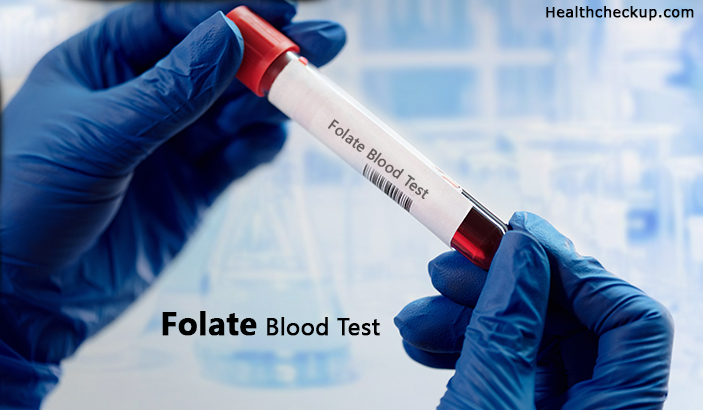

The folate blood test is highly useful in measuring the levels of vitamin in the liquid portion of the blood (plasma or serum) to trace deficiencies. The test is also useful in knowing the quantity of folate inside red blood cells. Vitamin B12 and folate blood test can easily determine the level of folate and Vitamin B12 levels which are the 2 major B complex vitamins that the human body requires for many key functions such as making standard red blood cells, white blood cells, heal cells, and tissues besides synthesizing DNA.
A folic acid test scales the quantity of folic acid (vitamin B-9) in the blood. It is vital for the making of healthy red blood cells. Folic acid is even key for the standard development of a fetus. It also aids with tissue and cell growth in addition to the making of DNA, which contains genetic information.
A doctor may conduct a folic acid test if one shows deficiency signs of folic acid. He/she may also refer if one is having vitamin B-12 deficiency symptoms. Lack of either folic acid or Vitamin B-12 can lead to anemia as such this test may also be recommended to know the presence of anemia symptoms. In addition, it may be suggested to know how far a treatment procedure is working for any of the above said conditions-anemia and folic acid and vitamin B-12 deficiencies.
The other conditions in which this test is recommended include intestinal disorders like Crohn’s disease or celiac disease. Both the conditions need a regular check-up as they make the condition difficult for the body to properly absorb folic acid.
This test is also needed for pregnant women and who are planning to get pregnant.
A folic acid test is done by taking a small amount of blood from a vein in the hand or arm. The blood is usually drawn using a needle. The result may come in hours, however, one may need other follow-up tests (if the doctor feels).
The results of this test differ from person to person based on age, gender, and medical condition. Test results are generally provided in nanograms per milliliter (ng/mL). A normal range for vitamin B-12 is 200 to 900 ng/mL and the normal range for folic acid is 2.7 to 17.0 nanograms per milliliter (ng/mL) or 6.12 to 38.52 nanomoles per liter (nmol/L).
If the test is conducted on the blood plasma, a normal range for folate is 2 to 10 ng/mL and if the test is conducted on red blood cells, a normal range is 140 to 960 ng/mL.
A high reflection of folate levels in the blood may not be a good sign. The causes of high folate levels in the blood may be the result of a recent high intake of folate and folic acid in the food.
Folate is highly present in foods like;
Folic acid is the human-made type of folate which is present in fortified foods (fortified breakfast cereals) and vitamin pills (folic acid tablets).
The causes of folate deficiency are many and include;
A diet that’s low in fresh vegetables, fruits, and fortified cereals can cause a deficiency of folate deficiency. Further, overcooking can also destroy vitamins and cause this condition.
Few diseases such as celiac disease, Crohn’s disease in the gastrointestinal tract lead to less absorption of folate. Besides some cancers and kidney problems that ask for dialysis may also cause this condition.
A few have a genetic issue that blocks the body from efficiently and properly converting supplemental or dietary folate to methyl folate, its usable form.
Few medicines such as sulfasalazine, methotrexate, trimethoprim-sulfamethoxazole, and phenytoin (Dilantin) may also cause this condition.
Besides these all, heavy alcohol intake mingles with folate absorption and heightens folate excretion through the urine.
The suggested folate dose per day is 400 micrograms but pregnant women may need more than this. The best way to maintain normal folate levels in the blood is to take the required amount of folate either through foods or supplements. However, remember that it is also not advisable to take it in high quantities.
Every now and then go for a folate blood test to know if you have this important vitamin in enough level.

Sudheendra is a passionate blogger for 8 years and holds a Degree in Journalism & Mass Communications. His writings particularly focus on health, medicine, diet & lifestyle. For him, everything that interlinks and relates to health & medical world entices him. His write-ups aim at educating people not by just giving facts but by infusing human touch.